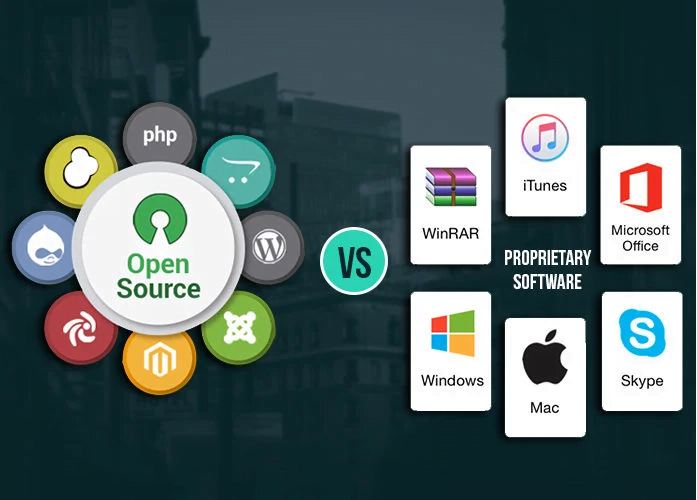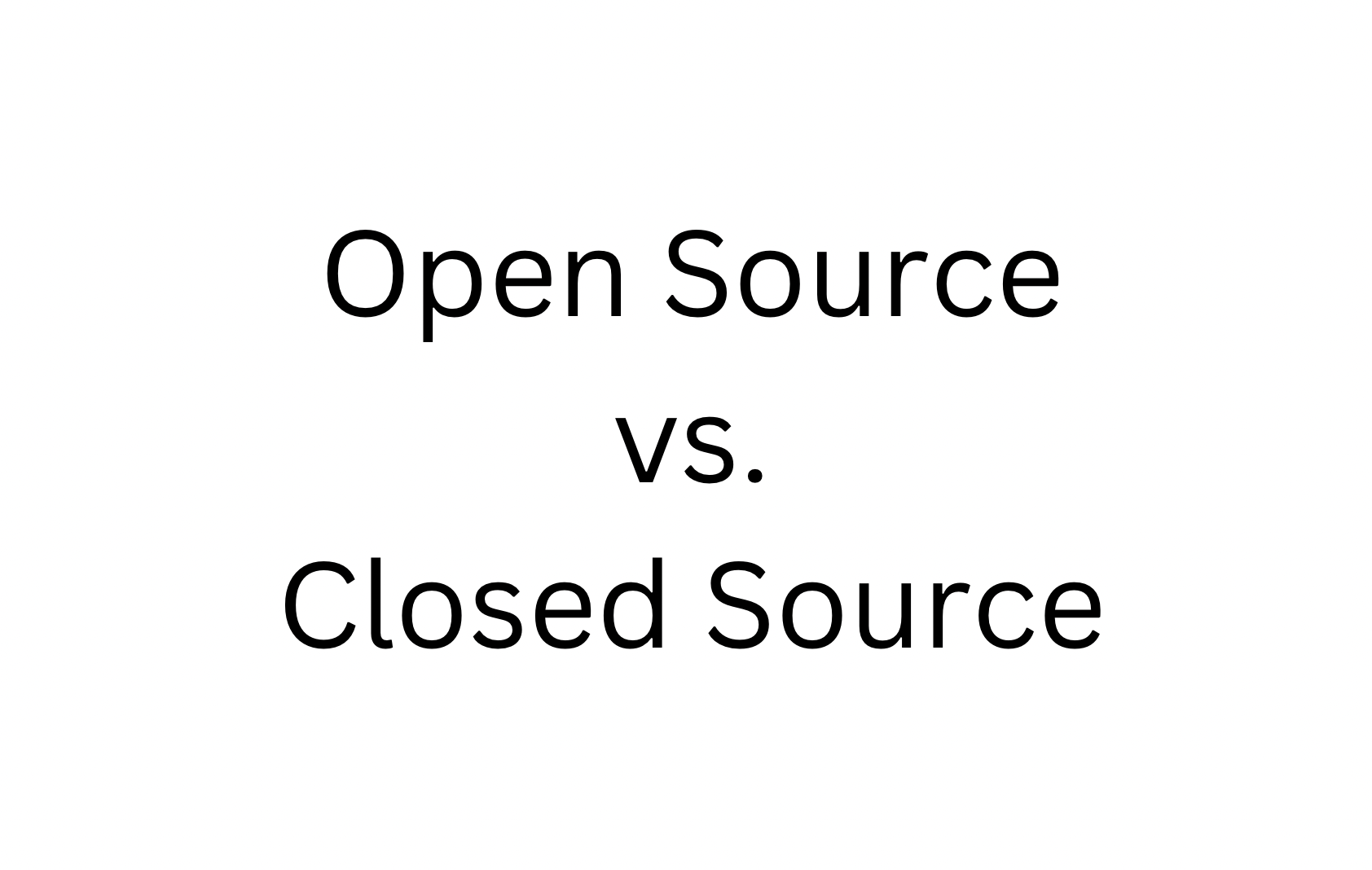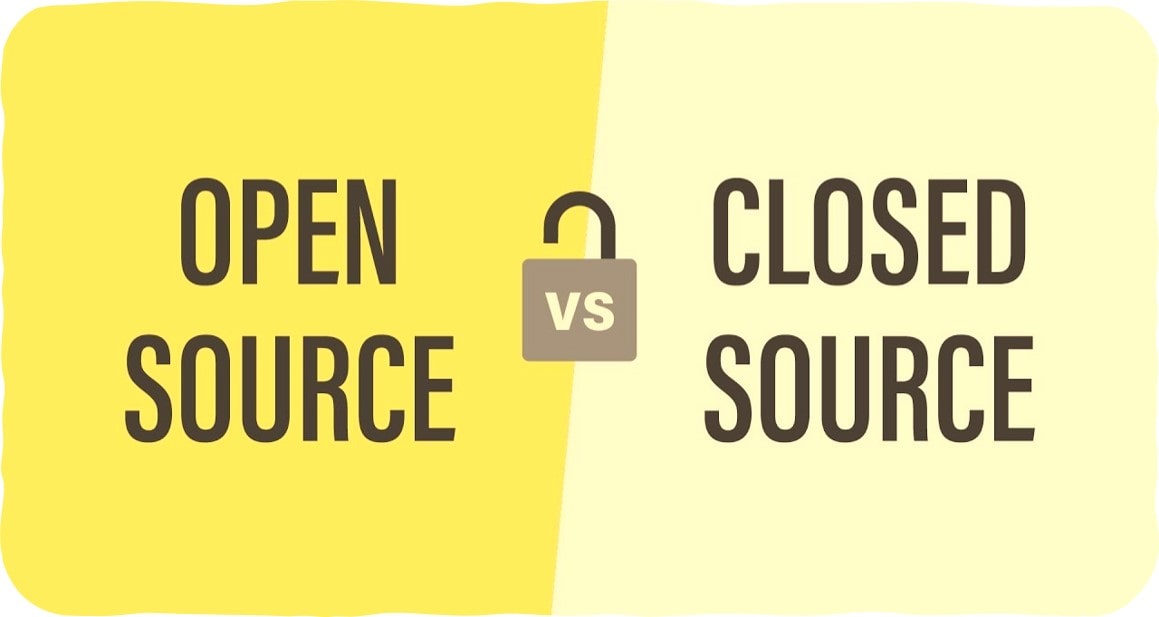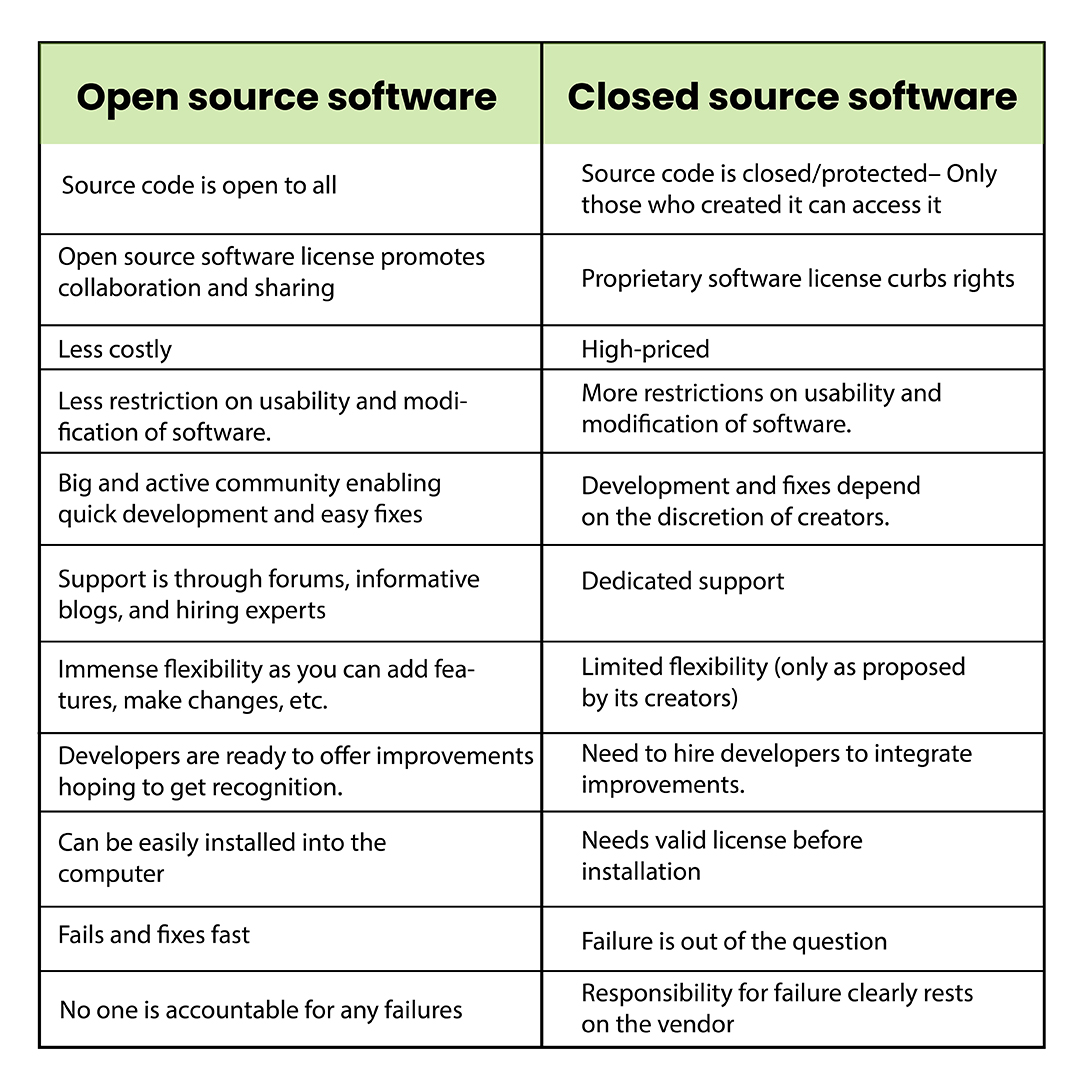
Difference Between Open Source and Closed Source Software
Based on these factors, both closed and open source are on equal grounds. Closed source has a high cost associated with the software, whereas open source has little to no cost associated with the software but has costs associated with additional features. ———————————. Overall, if you want scalability, flexibility, and to.

Your quick guide to open source and Jiralike alternatives
In most circumstances, open source tends to move faster than closed source when it comes to iterating and releasing new versions. This is true for a handful of reasons, including the fact that open source software tends to have more eyes on the source code at any given time, as well as a community-driven interest in bettering the product.

Open Source vs Closed Source • Explained in Hindi YouTube
The open vs closed source debate has been a sticking point for regulators in Europe and the United States who have opposing views. In Europe, the EU AI Act is expected to get final parliamentary.

Open Source vs Closed Source Software [Explained] YouTube
In this video, you'll learn more about the differences between open-source software and closed-source software. Visit https://edu.gcfglobal.org/en/basic-comp.

Open Source Vs. Closed Source
Closed source software can be defined as proprietary software distributed under a licensing agreement to authorized users with private modification, copying, and republishing restrictions. Or in layman terms, the source code is not shared with the public for anyone to look at or change . Closed source is the opposite of open source.

Comparing Open Source vs Closed Source Software Core dna
Open Source vs Closed Source: Support. In this particular comparison, closed source software is the winner. The cost is about the option to contact support and get it in one business day in most cases. Responses must be well organized and documented. For OSS, such an option is not provided. The only possible support options are useful articles.

The battle of the age Open source vs closed source! Open source, Sourcing, Open
There are a few differences between open and closed software, and these will be the deciding factors if you need to choose one or the other: - Cost: Open-source software tends to be free, so it's usually the best choice for individual users. The closed source can cost more, as it has to be designed for the user's needs.

Differences Between Open Source and Closed Source Softwares Archives Make An App Like
Conclusion: Choice between open-source software and closed-source software depends on the needs of the organization. Open-source software is a good choice for smaller organizations with limited budgets, while closed-source software is better suited for larger organizations that require enterprise-level features and support.

Open Source vs. Closed Source (Proprietary) Software A NeverEnding Debate Articles
Open-source software tends to be free or inexpensive. Closed-source software is more expensive. If you must pay for open-source software support, it may be less expensive. There are no user or CPU licensing restrictions on open-source software. Closed-source programs always have user and/or CPU licensing fees and restrictions.

Comparing Open Source and Closed Source Software Differences and Advantages Hygger.io
Pros of Closed Source Software. 1. Ease of use: Closed source software is often easier to use than open source software, as it is designed to be user-friendly and intuitive. 2. Support: Because a company owns closed source software, they are often able to provide a dedicated support system for users. 3.

Opensource vs. Closedsource software 7 Different useful aspects compared
More expensive. Closed source programs are often priced higher than open source platforms. Software companies following the open source format will often offer a free version of their software. When it comes to closed source software, however, there's very rarely a free version available.

The difference between open source and closed source software YouTube
Final thoughts: Choice between open-source software and closed-source software depends on the needs of the organization. Open-source software is a good choice for smaller organizations with limited budgets, while closed-source software is better suited for larger organizations that require enterprise-level features and support.

What Is Open Source Software? The Definitive Guide
Open-Source Software. Closed-Source Software. Cost. Nearly always free for you to use without paying any money. More likely to cost money. When proprietary software is offered for free, there's often a risk. Developers and publishers often monetize the program a different way, whether by displaying ads, tracking your behavior, sneaking unwanted.

Open source versus closed source software wat is het verschil?
A license, whether providing open-source code or not, that does not stipulate the "four software freedoms", [3] are not considered "free" by the free software movement. A closed source license is one that limits only the availability of the source code. By contrast a copyleft license claims to protect the "four software freedoms" by explicitly.

Odoo OpenSource vs ClosedSource ERP Software YouTube
For the end user, open-source is better if free software, more customization, and more transparency are important. Closed-source is better for the user if they want something that is more stable, has more software support, and is more user-friendly. Next: Meta's New Open Source AI Can Translate 200 Languages. Source: ITI Technical College.

OpenSource vs ClosedSource LMS Understanding Key LMS Technologies
In some cases, a hybrid approach that combines elements of both open and closed-source development may be the ideal solution. Hybrid models can leverage the strengths of both paradigms to achieve specific project goals. Conclusion. In conclusion, choosing between open-source and closed-source software development models is critical for any project.